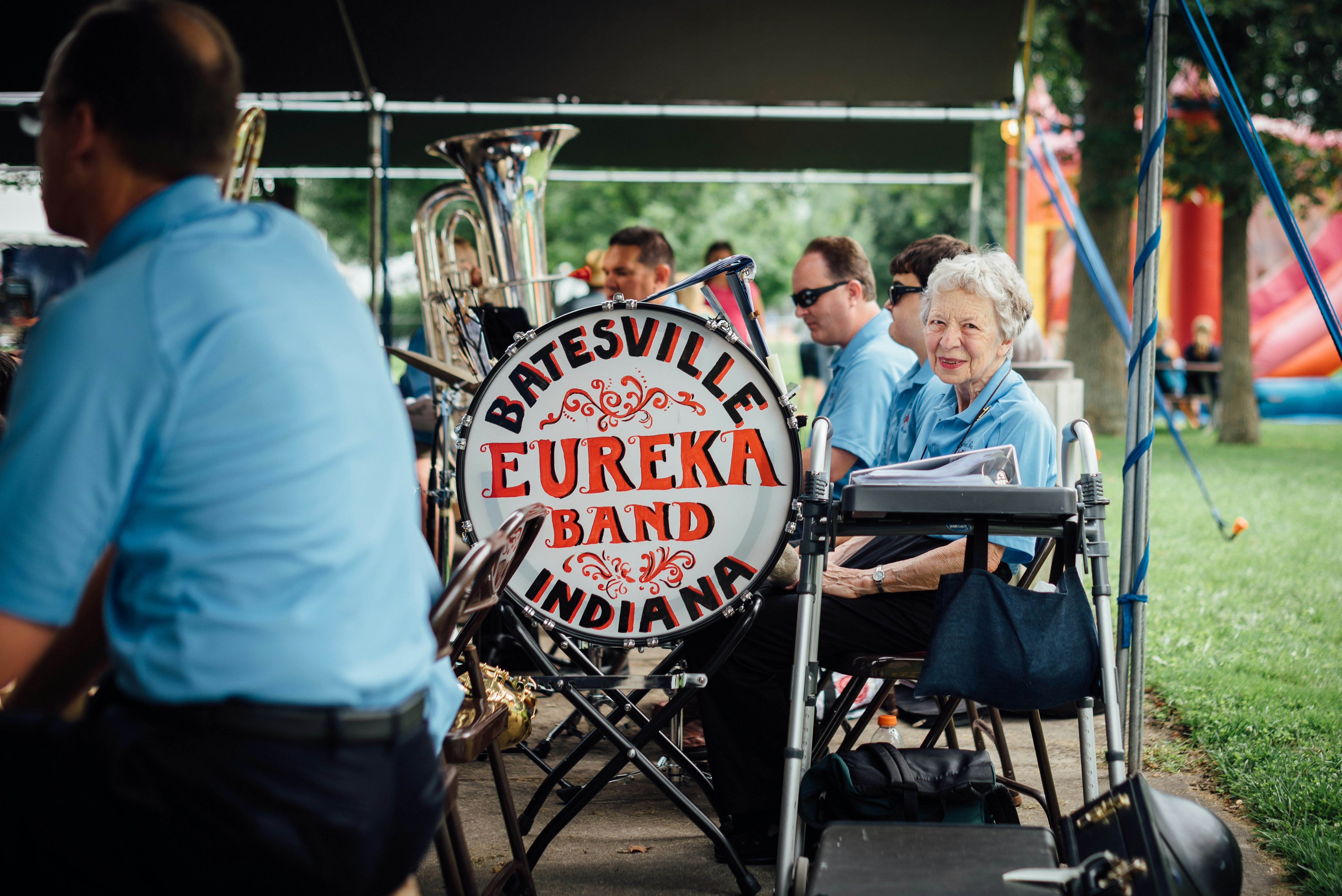The Stories We Carry - Preserving and Sharing Your Life's Legacy for Future Generations

Transform your memories into treasured gifts that will connect, inspire, and guide the people you love long after today becomes yesterday
Every person who has lived six, seven, or eight decades carries within them a library of stories that no one else possesses. These aren't just memories—they're windows into vanished worlds, testimonies of resilience, chronicles of love and loss, and repositories of hard-won wisdom. Yet too often, these precious narratives remain unshared, locked away in the minds of their owners until they're lost forever. The golden years offer a unique opportunity to become the keeper and curator of your own remarkable story, ensuring that the lessons, laughter, and love you've accumulated become lasting gifts for those who follow.
The Irreplaceable Nature of Personal History
In an age of digital overwhelm and constant information, personal stories possess a unique power to cut through noise and touch hearts directly. While history books record major events and statistics, only you can tell the story of what it felt like to dance to big band music in your twenties, to raise children during times of social upheaval, to witness the transformation of your hometown over decades, or to love someone deeply through all of life's seasons.Your experiences bridge different eras in ways that formal histories cannot. You've lived through technological revolutions, social changes, and cultural shifts that younger generations can barely imagine. You remember when telephone calls were events, when letters were the primary means of long-distance communication, when communities were smaller and more tightly knit. These aren't just nostalgic reminiscences—they're invaluable perspectives on how the world has changed and what has remained constant in the human experience.Research in family therapy consistently shows that children and grandchildren who know their family stories demonstrate higher self-esteem, better emotional regulation, and stronger resilience in facing challenges. Dr. Marshall Duke's studies at Emory University reveal that young people who can answer questions about their family history—where their grandparents grew up, how their parents met, what challenges the family overcame—score higher on measures of emotional well-being and family functioning.
The Art of Memory Cultivation
Before stories can be shared, they must be remembered and organized. Many older adults worry that their memories have become unreliable or that the details they recall aren't accurate enough to merit preservation. However, the emotional truth of experiences often matters more than factual precision. The way events felt, the lessons they taught, and the relationships they revealed are the aspects of stories that resonate most powerfully with listeners.Memory cultivation begins with creating quiet, reflective time for remembering. Unlike the hurried recollections that come up in casual conversation, deep memory work requires patience and gentle persistence. Many people find that certain triggers—old photographs, familiar music, scents, or returning to meaningful places—unlock forgotten details and emotions.Organizing memories chronologically can be helpful, but thematic organization often proves more meaningful. Consider grouping recollections around topics like "lessons learned from hardship," "moments of unexpected joy," "people who shaped my character," or "family traditions and their meanings." This approach allows patterns and themes to emerge that might not be apparent in strictly chronological accounts.Memory work also benefits from collaboration. Conversations with siblings, old friends, or long-term neighbors often spark recollections that solitary reflection might not uncover. These shared reminiscences can reveal different perspectives on the same events, creating richer, more complete narratives.
Methods of Preservation
The ways to preserve and share life stories have expanded dramatically in recent decades, offering options for every personality type and comfort level with technology. Traditional approaches remain deeply meaningful—handwritten letters to grandchildren, carefully organized photo albums with detailed captions, or family recipe collections that include stories about the occasions when certain dishes were prepared.Audio recordings offer particular intimacy and immediacy. The sound of a loved one's voice, with its unique inflections, laughter, and pauses, creates an emotional connection that written words alone cannot achieve. Many families treasure recordings of grandparents telling stories, singing old songs, or simply talking about their experiences. Modern smartphones make creating these recordings remarkably simple, requiring no special equipment or technical expertise.Video recordings add another dimension, capturing facial expressions, gestures, and the physical presence of the storyteller. These might include tours of meaningful places—the house where you raised your children, the church where you were married, the neighborhood where you grew up—with commentary about their significance. Some families create video interviews, with younger family members asking questions about specific periods or experiences.Written memoirs need not be lengthy or professionally polished to be treasured. Short vignettes about specific experiences, character sketches of important people in your life, or letters addressed to future generations can be extraordinarily meaningful. The key is authenticity rather than literary perfection.
The Power of Themed Storytelling
Rather than attempting to chronicle an entire life, many people find success in focusing on specific themes or time periods. This approach makes the task less overwhelming while creating more focused, engaging narratives.Career stories often fascinate younger generations who may work in entirely different fields or economic conditions. What was it like to start your first job? How did workplace relationships differ from today? What challenges did you face as industries changed around you? How did you find meaning and satisfaction in your work? These professional narratives provide insights into different eras while offering timeless wisdom about perseverance, adaptation, and finding purpose.Parenting stories hold special significance for adult children who are raising their own families. Sharing the challenges, mistakes, and small triumphs of parenthood—particularly the everyday moments rather than just major milestones—helps younger parents feel less alone in their struggles. These stories can also explain family patterns, traditions, and values that might otherwise be taken for granted.Love stories—not just romantic love, but stories of friendship, family bonds, and community connections—illuminate the relational aspects of a well-lived life. How did you meet lifelong friends? What sustained your marriage through difficult periods? How did you maintain connections across distance and time? These narratives provide templates for building and maintaining meaningful relationships.Stories of overcoming adversity often prove most valuable to younger generations. Every life includes periods of struggle, loss, and uncertainty. Sharing how you navigated these challenges—what resources you drew upon, what you learned about yourself, how you found hope during dark times—provides practical wisdom and emotional encouragement to others facing their own difficulties.
Creating Intergenerational Connections
The process of sharing life stories creates opportunities for deeper connections across generations. Rather than being one-way transfers of information from older to younger, these exchanges often become rich conversations that benefit all participants.Younger family members gain historical perspective, family identity, and practical wisdom from hearing older generations' stories. But storytellers also benefit from the questions, reactions, and contemporary perspectives that listeners bring to these exchanges. A grandchild's curiosity about seemingly mundane details can help grandparents see their own experiences in new ways.These storytelling sessions often reveal surprising connections between different generations' experiences. A grandmother's stories about facing workplace discrimination might resonate deeply with a granddaughter navigating contemporary professional challenges. A grandfather's accounts of community service might inspire a grandson to become more civically engaged.The key to successful intergenerational storytelling lies in making these exchanges conversational rather than lecture-like. Encourage questions, invite comparisons to contemporary experiences, and be open to sharing not just successes but also mistakes and lessons learned from failure.
The Digital Legacy
Modern technology offers unprecedented opportunities to create lasting digital archives of life stories. Simple video calls can be recorded for posterity. Digital photo organization tools make it possible to create comprehensive visual histories with detailed metadata about people, places, and events.Social media platforms, despite their limitations, can serve as repositories for ongoing storytelling. Regular posts about memories, with photos and detailed captions, create accessible archives that family members can enjoy immediately and treasure indefinitely. Many older adults find that sharing memories online generates responses from old friends and distant family members, enriching the stories with additional perspectives and details.Cloud storage ensures that digital materials won't be lost to hardware failures or physical disasters. Creating multiple copies of important recordings, photos, and documents in different formats and locations provides security for these irreplaceable materials.However, technology should enhance rather than complicate the storytelling process. The most sophisticated recording equipment or software means nothing if it prevents stories from being shared. Simple solutions that feel manageable are more likely to be used consistently than complex systems that create barriers to participation.
The Living Legacy
Perhaps the most powerful aspect of sharing life stories lies not in the preservation of specific narratives but in the modeling of values, attitudes, and approaches to living. The way you tell your stories—with humor, grace, honesty, or resilience—teaches as much as the content of the stories themselves.Stories that acknowledge mistakes and failures alongside successes provide permission for younger generations to be imperfect while still striving for growth. Narratives that find meaning in ordinary experiences demonstrate that significance doesn't require fame or fortune. Tales that emphasize relationships over achievements remind listeners what truly matters in life.The process of storytelling itself becomes part of the legacy. Family members who witness older relatives taking time to reflect, organize their thoughts, and share their experiences learn the importance of intentional memory-keeping. They're more likely to become storytellers themselves, ensuring that the tradition continues across generations.As you consider your own story-telling journey, remember that you don't need to have lived an extraordinary life to have extraordinary stories worth sharing. Every life contains moments of courage, instances of love, examples of perseverance, and accumulations of wisdom that can light the way for others. Your stories matter not because they're unique in human history, but because they're uniquely yours—and no one else can tell them.The stories we carry are gifts waiting to be unwrapped. In sharing them thoughtfully and lovingly, we ensure that the best parts of our lives continue to nurture, inspire, and guide long after our own chapters have ended. This may be the most meaningful legacy we can leave—not just records of what we did, but evidence of how we loved, what we learned, and why our time on this earth mattered.





